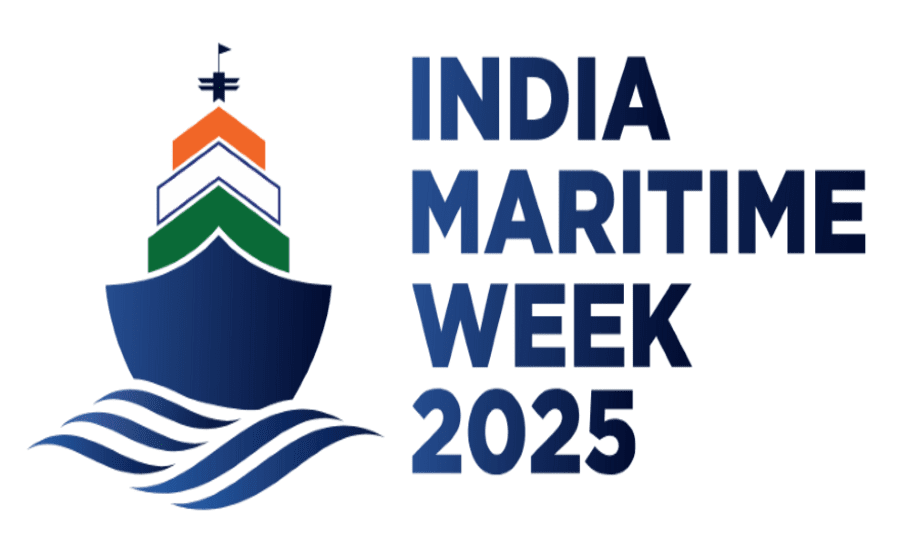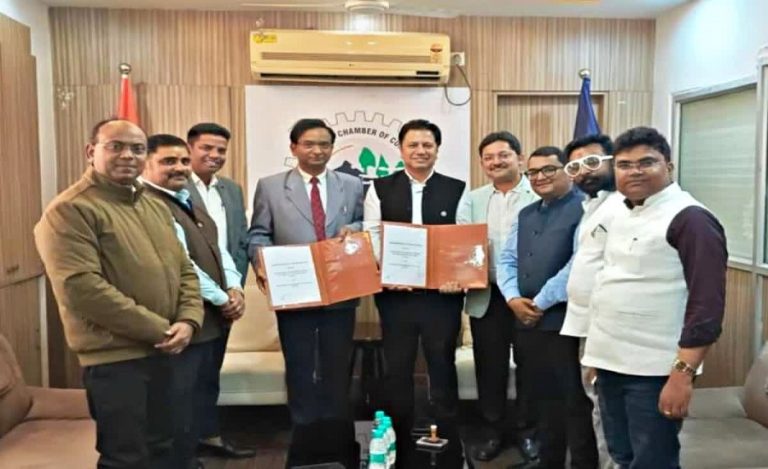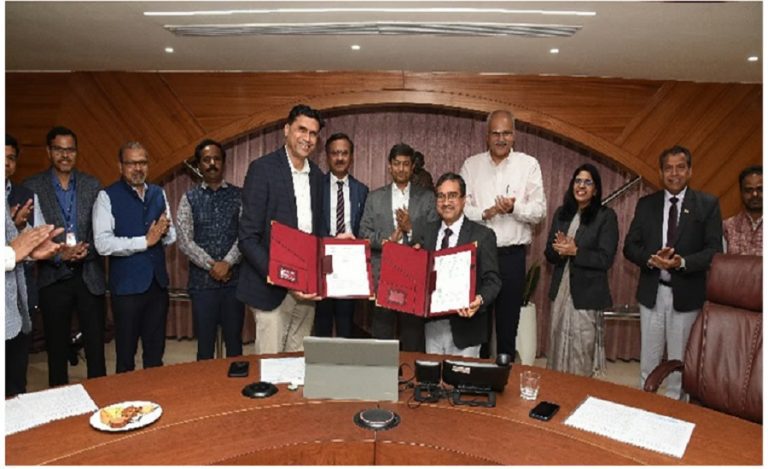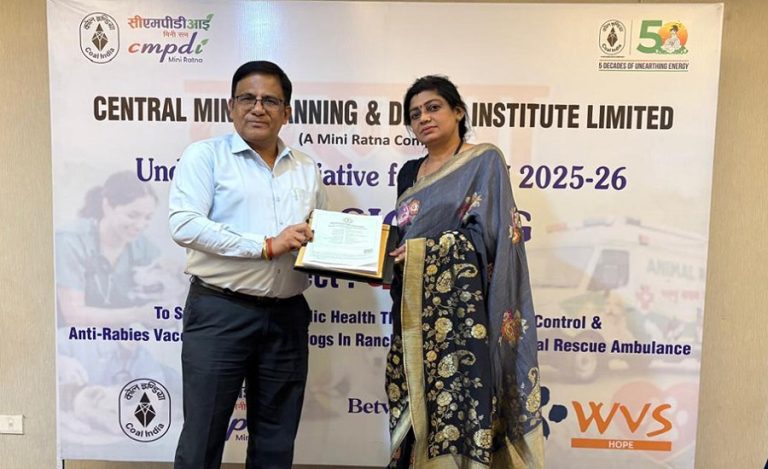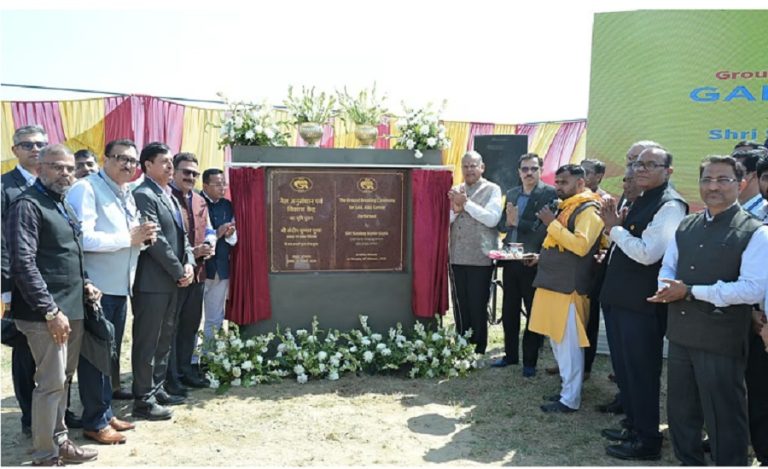Mumbai: Mumbai witnessed a high-powered launch of India Maritime Week 2025, spearheaded by the Ministry of Ports, Shipping and Waterways (MoPSW). The event is aimed at positioning India as a major maritime hub by 2047, with focus on policy reforms, digitalisation, sustainability, and capacity expansion.
India Maritime Week 2025 Day 1 Highlights
- A Memorandum of Understanding (MoU) between India and the Netherlands on maritime cooperation — which includes a Letter of Intent (LoI) for a Green & Digital Sea Corridor connecting Indian ports with the Port of Rotterdam.
- The corridor will focus on clean fuels (hydrogen, ammonia, methanol), digital port operations and logistics innovation — signalling a pivot toward decarbonisation in maritime supply chains.
- Several business-MoUs were signed (with Invest International & Indian Bank/ICICI Bank, Dutch Climate Fund Managers, MARIN & National Centre of Excellence for Green Ports & Shipping, Port of Rotterdam & Deendayal Port Authority) and a Dutch-funded market study (“Indian Ports: Enabling Smart and Sustainable Port Development” by KPMG) launched.
- Private-sector deals worth approx. ₹55,000 crore were sealed with global and Indian companies including Adani Ports & SEZ Ltd., JSW Infrastructure Ltd., Chowgule & Co. Pvt. Ltd., Synergy Shipbuilders & Dock Ltd., Goa Shipyard Ltd., Abu Dhabi Ports Group and Echandia Marine AB — targeting port expansion, shipyards, skills and green ship-building.
- During state-sessions across Goa, Gujarat, Maharashtra, Odisha and the Andaman & Nicobar Islands, additional MoUs were launched — e.g., Goa’s Maritime Vision document plus deals worth ₹3,525 crore for LNG & solar infrastructure and ₹6,163 crore for strategic port projects.
Strategic Vision: Scaling India’s Maritime Ambitions
According to Union Minister Sarbananda Sonowal, India aims to triple its global trade share by 2047 through policy reform, capacity expansion and digital port capabilities.
Minister of State Shantanu Thakur emphasised skilling and sustainability as core elements of India’s maritime transformation, creating a smart, green, globally connected maritime ecosystem.
In the presence of Nitin Gadkari (Union Minister for Road Transport & Highways), the session titled “Innovative Mechanisms for Ship Financing” highlighted the USD 1 trillion potential of the maritime sector globally, and called for newer financial models like TOT (Transfer of Technology), InvITs and PPPs to attract investment.
Why This Matters: Green Ports, Digital Corridors & Maritime Growth
The MoU with the Netherlands positions India to integrate with Europe’s maritime logistics and sustainable shipping ecosystem—offering access to technologies for hydrogen/ammonia-fuelled shipping, port digitalisation and twin-port collaborations.
The big ticket of ₹55,000 crore signals investor confidence and the Indian government’s willingness to back large-scale maritime infrastructure developments.
By focusing on green shipbuilding, clean fuels and logistics innovation, India aligns with global decarbonisation trends and future-proofs its maritime infrastructure.
Building smart, digital ports lowers transaction cost, increases throughput, and enhances India’s competitiveness in global trade shipping.
Regional state-level sessions show that the strategy is not only national but also tailored regionally — enabling states like Goa, Odisha, Maharashtra, Andamans to contribute to and benefit from the maritime push.
What Lies Ahead: Key Takeaways for Stakeholders
Investors: The ₹55,000 crore commitment offers major green-field opportunities in ports, shipyards, logistics, clean fuel and maritime services.
Industry: Digitalisation, clean fuels and new financing models (TOT/InvITs/PPPs) will define the next wave of shipping & port infrastructure.
Policy-Makers: The collaboration with the Netherlands demonstrates the importance of international partnerships in technology transfer, decarbonised shipping and logistics corridors.
State Governments: Regional sessions show that local needs (LNG/solar in Goa, port projects in Odisha/Andamans) will be tied to national maritime goals — synergy between Centre and states is key.
Sustainability Advocates: Green ship-building, clean fuel shipping, and digital port operations mark a shift toward decarbonised maritime ecosystems in India.

